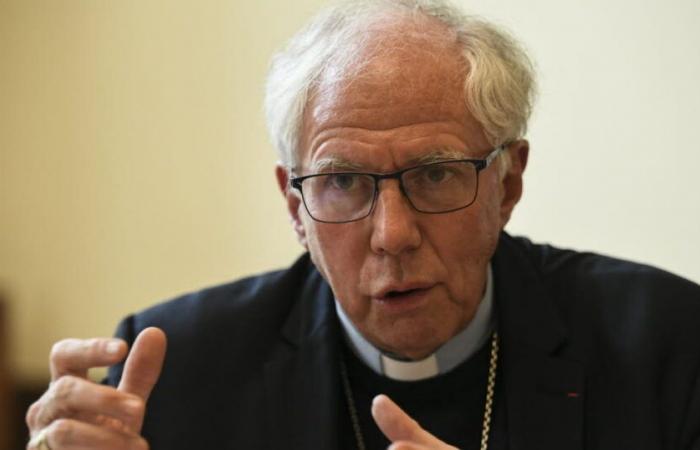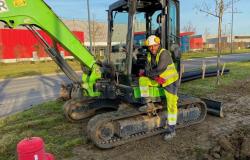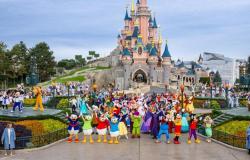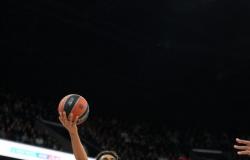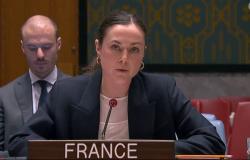You attended the reopening of Notre-Dame de Paris Cathedral. How did you experience this moment?
“It had a particular resonance for me because I was ordained deacon then priest at Notre-Dame, and I was also a canon of Notre-Dame. I did not have the opportunity to visit the site before the reopening. I found our cathedral as we knew it, and even more beautiful while remaining very simple. During Sunday mass, I felt a very strong joy, fervor, and emotion. Although the weather was really bad, many of us stayed on the square after mass. I really had the feeling of living a unique moment. Another thing struck me, which was little reported by the media: at the initiative of the Vicariate for Solidarity, around fifty people in precariousness were able to attend this reopening. »
Reopening within five years was a strong desire of President Macron…
“I met him several times during the reopening weekend, but I did not have the opportunity to speak directly with him. Five years was both a long time without our cathedral, but also very short given the scale of the work undertaken. Let us not forget either that they were entirely financed thanks to donations from France but also from abroad. »
The other recent event for the Catholic Church was the Pope’s visit last weekend to Corsica, to Ajaccio…
“I of course followed this visit, but I had another commitment, in Saint-Thibault. The church was scheduled to reopen in September, and I was unable to go. I had promised to come as soon as possible, and the date was set for this Sunday, December 15th. I wanted to keep this commitment. It was also an opportunity to rediscover a grandiose church, in a small village. What I learned from the Pope’s visit to Corsica was also a lot of fervor but in a form of simplicity. It was also an opportunity for him to convey certain messages, for example on secularism. I regret the controversies that often arise over Advent calendars and nativity scenes… I think it’s never good to cut yourself off from your roots, from where you come from. However, there is no question of the church interfering and wanting to control society. »
For Catholics, the year 2025 will also be a jubilee year. How will this come to fruition in the diocese of Dijon?
“This has in fact come back every 25 years, since the year 1300. For the diocese of Dijon, this will result in a pilgrimage from June 13 to 18 to Rome, as well as participation in the Youth Jubilee in summer, a form mini-World Youth Day. »
Like last year, you will celebrate a Christmas mass at the Dijon remand center. Why is this important to you?
“I actually go to the remand center at least twice a year, for Easter and Christmas. This is an important moment for the inmates but also the staff. This is an opportunity to remember that whatever the path that led the inmates to prison, they are not abandoned. We also have a chaplaincy team which works all year round, under the authority of Father Raoul Mutin, Catholic chaplain of the remand center. »
At the international level, you are also a member of the Commission of Episcopates of the European Union (Comece). What is it for?
“Each country of the European Union is represented within Comece. It allows for debate on subjects and directions of the European Union. After the European elections in June, we were received by the Pope in his office in Rome. I have represented France at Comece since 2017, and I have been one of the four vice-presidents for two years. »
In the diocese of Dijon, the year was also marked by the revelation of the abuses alleged against Father Nicolas. You have opened the door to collecting other testimonies. Where are we?
“To this date, we have only received one other testimony, which is indirect, without it leading to the creation of a file. »

